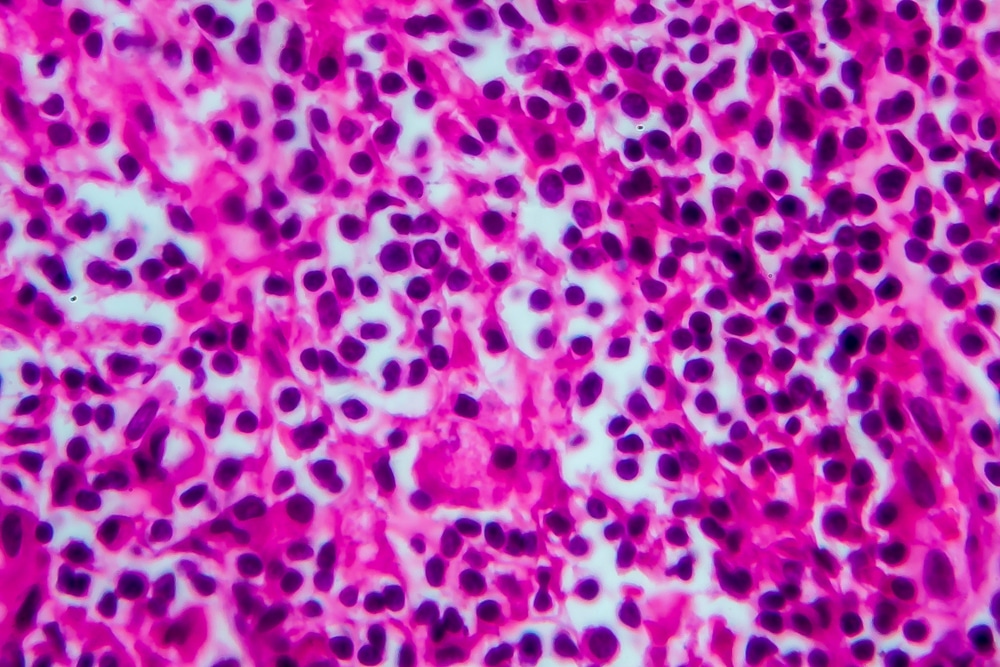Newsletter Signup - Under Article / In Page
"*" indicates required fields
Curis, Inc., a biotech company focused on the development of innovative therapeutics for the treatment of cancer, says the U.S. Food and Drug Administration (FDA) has lifted the partial clinical hold on the TakeAim lymphoma phase 1/2 study of emavusertib after reviewing the data package submitted by Curis.
“We are excited to announce that FDA has completed its review of the TakeAim Lymphoma study and has lifted the partial clinical hold. We are working with our clinical sites to quickly resume enrollment of new patients in this study in the third quarter,” said James Dentzer, president and CEO of Curis.
Previously, Curis announced the FDA had placed separate partial clinical holds on the TakeAim Leukemia and TakeAim Lymphoma studies on April 4 and April 11, 2022, respectively.
The partial hold on the TakeAim leukemia study was issued by the FDA Division of Hematologic Malignancies 1 (DHM1), which regulates clinical studies in leukemia. The partial hold on the TakeAim lymphoma study, and the lifting of that hold, was issued by the FDA Division of Hematologic Malignancies 2 (DHM2), which regulates clinical studies in lymphoma.
The partial clinical hold was lifted following agreement with the FDA on Curis’ strategy for rhabdomyolysis identification and management, as well as on the enrollment of at least nine additional patients at the 200 mg dose level of emavusertib in combination with ibrutinib.
With the partial clinical hold lifted on the study, the company is updating its timeline for clinical data release to reflect the availability of updated preliminary data from this study in 2023. In addition, Curis is proactively discussing the clinical plans for emavusertib, including alignment on optimal dose and development path, with DHM2 for the TakeAim lymphoma study.
About Emavusertib
Emavusertib is an IRAK4 kinase inhibitor. IRAK4 plays an essential role in the toll-like receptor (TLR) and interleukin-1 receptor (IL-1R) signaling pathways, which are frequently dysregulated in patients with cancer.
TLRs and the IL-1R family signal through the adaptor protein MYD88, which results in the assembly and activation of IRAK4, initiating a signaling cascade that induces cytokine and survival factor expression mediated by the NF-κB protein complex.
Additionally, third parties have recently discovered that the long form of IRAK4 (IRAK4-L) is oncogenic and preferentially expressed in more than half of patients with acute myeloid leukemia (AML) and myelodysplastic syndrome (MDS). The overexpression of IRAK4-L is believed to be driven by a variety of factors, including specific spliceosome mutations such as SF3B1 and U2AF1. In addition to inhibiting IRAK4, emavusertib was also designed to inhibit FLT3, a known oncologic driver, which may provide additional benefit in patients with AML and MDS.
About TakeAim lymphoma
The TakeAim Lymphoma study is a phase 1/2 open-label, dose escalation, dose expansion clinical trial investigating emavusertib as monotherapy and in combination with ibrutinib in patients with R/R hematologic malignancies, such as non-Hodgkin’s lymphoma and other B cell malignancies.
After dose escalation in both monotherapy and combination therapy to determine the RP2D, the company plans to expand four cohorts for combination treatment: marginal zone lymphoma, activated b-cell diffuse large b-cell lymphoma, primary CNS lymphoma, and patients developing adaptive resistance to ibrutinib monotherapy. The goals of the study are to determine several parameters including safety, MTD, RP2D and signals of activity.
Curis is engaged in a collaboration with ImmuNext for development of CI-8993, a monoclonal anti-VISTA antibody, which is currently undergoing testing in a phase 1 trial in patients with solid tumors. Curis is also collaborating with Genentech, a member of the Roche Group, under which Genentech and Roche are commercializing Erivedge for the treatment of advanced basal cell carcinoma.
Oncology R&D trends and breakthrough innovations







